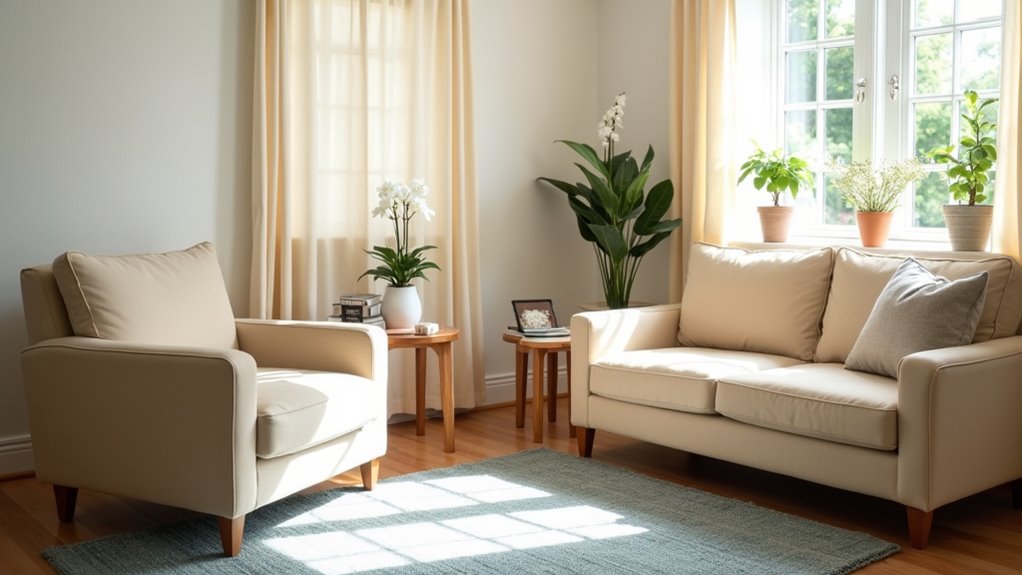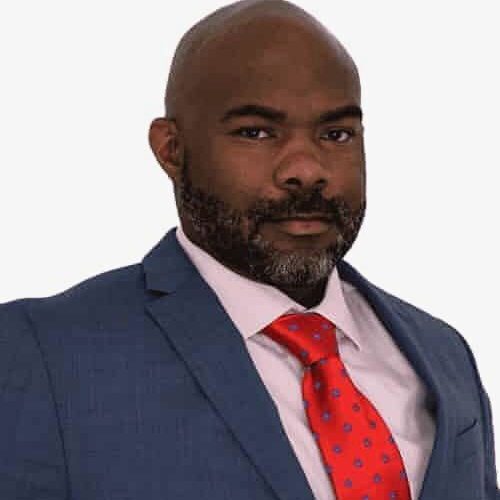In individual family therapy sessions, you’ll work with a trained therapist in a private, comfortable space designed for open dialogue. You’ll uncover your personal emotions, behaviors, and family dynamics while developing healthier coping skills and communication patterns. Your therapist will help you establish trust, maintain clear boundaries, and align your individual goals with your family’s needs. Through personalized attention and strategic techniques, you’ll find practical solutions for both personal growth and stronger family relationships.
Creating a Safe and Private Space

When you begin individual family therapy, the physical environment plays a pivotal role in creating a sense of safety and confidentiality. You’ll notice that therapy spaces are designed with strict confidentiality protocols, including soundproofed walls and secure entry points that prevent conversations from being overheard by others. Non-judgmental communication is fostered through the therapist’s carefully designed office layout and protocols. A room designed with cool hues and soft lighting helps create a relaxing atmosphere that encourages better self-disclosure.
The room’s privacy safeguards extend to thoughtfully arranged seating areas, typically featuring comfortable furniture positioned to encourage open dialogue while maintaining personal space. You’ll find yourself in a space that’s between 160-200 square feet, carefully decorated with neutral colors and calming artwork to help you feel at ease. The suite entry and exit are strategically placed to ensure both safety and convenience for all clients. The setting includes adjustable lighting and temperature controls to guarantee your physical comfort, while separate waiting areas protect your privacy before and after sessions.
Personal Growth and Self-Discovery
During individual family therapy sessions, you’ll undertake a transformative expedition of personal growth and self-discovery that extends far beyond surface-level conversations. Your self-acceptance odyssey begins with deepening self-understanding through guided exploration of your emotions, behaviors, and family dynamics. Working with a neutral third party, your therapist provides unbiased guidance to help you explore your feelings openly and honestly. The therapist creates a judgment-free environment where you can safely express your vulnerabilities. Some therapists utilize online platforms to provide their services, though accessibility may occasionally be affected by security measures.
Your therapist will help you navigate this trek through:
- Examining your emotional triggers and developing healthier coping mechanisms to replace destructive patterns
- Analyzing how your childhood experiences shape your current relationships and communication style
- Building practical skills for assertive expression while strengthening your capacity for empathy
You’ll learn to challenge limiting beliefs and celebrate your progress as you develop a more positive self-image. Through this process, you’ll gain valuable insights and tools to create lasting positive changes in your life and relationships.
Building Trust With Your Therapist

Building a strong therapeutic alliance is the cornerstone of successful individual family therapy. Your therapist will focus on establishing trust through active listening, empathy, and validation of your experiences. They’ll help you feel heard and understood while managing expectations about the therapeutic process. A key focus will be fostering trustworthy relationships through fair and responsible interactions.
You can expect your therapist to maintain clear boundaries and professional neutrality throughout your sessions. Research shows that honesty and transparency lead to greater emotional alignment between therapist and client. Your therapist will take time to complete initial paperwork and discuss important administrative details during your first meeting. They’ll explain confidentiality policies and their role in facilitating your growth while creating a safe space for open dialogue. Through structured conversations and targeted questions, you’ll work together to address specific concerns and develop treatment goals.
Your therapist will regularly check in on your progress, adjust approaches as needed, and celebrate small victories. This collaborative process helps build the trust necessary for meaningful therapeutic work and personal transformation.
Addressing Individual Challenges
Individual challenges within family dynamics often require personalized attention and focused therapeutic work. Strategic therapy techniques are implemented to find direct solutions to personal issues. When exploring self identity and identifying root causes of personal struggles, you’ll engage in targeted interventions designed to address your unique situation within the family system. You’ll work on establishing healthy boundaries and expectations as part of addressing individual challenges.
Your therapist will help you develop specific strategies through:
- Creating individualized coping mechanisms to manage your personal triggers and stressors
- Exploring emotional conflicts and suppressed feelings that impact your family relationships
- Building customized communication skills that match your specific interaction patterns
Through this focused work, you’ll gain deeper insights into your role within the family while developing practical tools for personal growth. This tailored approach helps you address your specific emotional needs while maintaining healthy connections with family members.
Connecting Personal and Family Goals

As personal growth unfolds in family therapy, connecting your individual progress to broader family goals becomes a natural next step. The key is finding ways to align your personal objectives with the family’s collective needs while achieving work-life balance. Your therapist will help you develop strategies to express individual concerns constructively while maintaining family harmony. Your therapist will help establish clear ground rules to create a safe environment for sharing. Working with a therapist who seeks each perspective helps ensure all voices are heard and validated. Regular progress monitoring helps track individual and family development over time.
Cultivating healthy boundaries plays an essential role in this process. You’ll learn to communicate your needs assertively while remaining sensitive to others’ perspectives. Through structured feedback sessions, you’ll practice using “I” statements and role-playing exercises to improve family dialogue. These techniques help bridge personal growth with family dynamics, creating a supportive environment where individual achievements strengthen the family unit. The goal is to foster mutual understanding while respecting each person’s unique path within the family system.
Frequently Asked Questions
How Long Should I Wait Before Bringing up Traumatic Family Events?
You’ll want to follow a gradual disclosure process guided by your emotional readiness rather than a fixed timeline. Work with your therapist to develop a trauma-informed approach that respects your pace and comfort level. You’ll know you’re ready when you feel emotionally stable and have support systems in place. Don’t rush it’s normal to take time building trust and coping skills before sharing traumatic experiences. Your healing expedition is personal.
Can My Therapist Share Session Details With Other Family Members?
Your therapist can’t share your session details with family members without your written permission, as this would violate therapist confidentiality policies. While verbal consent isn’t enough, there are two exceptions: emergencies where your safety is at risk, or if you’ve signed a release form specifically allowing it. You’re in control of how your private family concerns are shared, and you can always discuss with your therapist exactly what information you’re comfortable having disclosed.
What Happens if I Need More Individual Sessions Than Group Ones?
If you need increased frequency of individual sessions, don’t worry, this is completely normal and can be discussed with your therapist. They’ll work with you to adjust your treatment plan for a more specialized focus on your needs. You’ll want to check your insurance coverage and discuss scheduling options. Your therapist can help evaluate whether temporary or long-term adjustments are needed while still maintaining any beneficial group work components.
Should I Tell My Family Members I’m Attending Individual Therapy Sessions?
Being open about attending individual therapy can strengthen family relationships, but the decision is yours to make. You can share general information while keeping private conversations confidential. Consider discussing your choice when you’re ready, focusing on how it helps you contribute positively to family dynamics. If you decide to tell them, emphasize how individual sessions help develop shared perspectives and amplify your ability to communicate effectively with the family.
Can I Switch Therapists if I Don’t Connect With Mine?
Yes, you can absolutely switch therapists if you’re not feeling a strong connection. It’s vital that you feel comfortable and understood during your therapy sessions. Many people examine alternate therapist options before finding their ideal match. Don’t hesitate to discuss your concerns with your current therapist or request referrals. They can help maintain your therapy session frequency while moving to someone new. Remember, finding the right therapeutic fit is pivotal for your mental health journey.
















